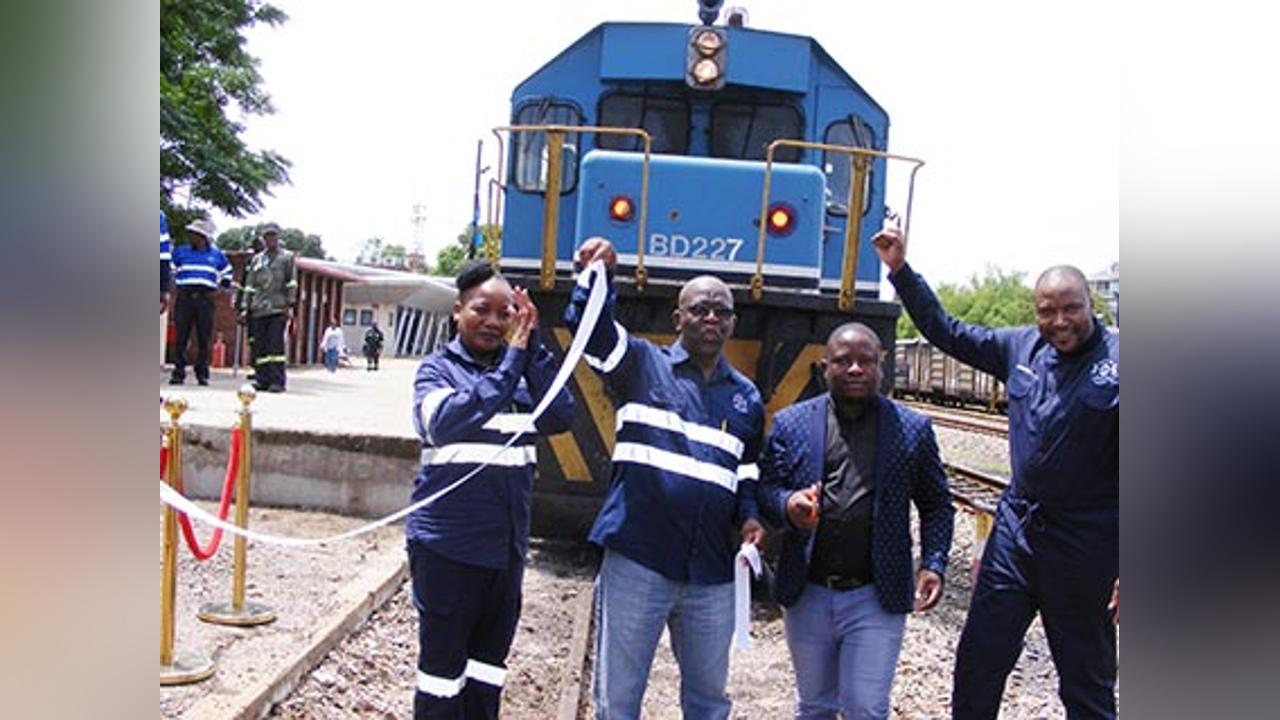Africa-Press – Botswana. Aging rolling stock and limited maintenance has severely affected Botswana Railways operations, says Minister of Transport and Public Works, Mr Eric Molale.
“The intention therefore is to construct a maintenance facility which will address maintenance backlog, reduce cost of outsourcing of rolling stock and increase capacity of our maintenance facilities,” said Mr Molale presenting the ministry’s 2023/2024 budget proposals recently.
Mr Molale said railway infrastructure required over P167.8 million from over P3.170 billion earmarked for the ministry’s development projects.
He indicated that the maintenance facility, expected to be completed next year, would go a long way in meeting local industrialisation objectives including skills development and job creation.
“In an effort to promote private sector participation in the rail industry, Botswana Railways will be restructured into two units of rail operations and rail infrastructure. The economic transformation drive requires increased capacity and alternative routes to export and import products through rail,” he said. Consequently, he said the operational agreement between Botswana Railways and National Railways of Zimbabwe, transportation would be possible through Bulawayo, transiting to Mozambique as opposed to the current where Botswana trains went as far as Plumtree.
“My ministry is also in the process of finalising another agreement with South Africa which will allow our trains to proceed to their destination as opposed to terminating at Mafikeng.
In both instances, it will improve our turnaround times with the concomitant envisaged increases in revenue,” he added.In April last year, he said Botswana Railways launched the first train to Maputo from Morupule coal mine hauling 2 000 tonnes of coal on 40 wagons via Zimbabwe, adding the train, marked a major milestone to both the railway and the mining industries as it demonstrated a much needed rail solution to export coal from Botswana to overseas markets.
“As at the end of December last year, a total of 67 715 tonnes of coal had moved through the Limpopo route to the port of Maputo for export to overseas markets,” he added.
Further, Mr Molale told Parliament that in order to provide alternative routes for export and import of commodities and in turn facilitate trade, the ministry was undertaking a bankable feasibility study for the Mosetse-Kazungula and the Mmamabula-Lephalale rail lines.
“The development of these rail lines is expected to place Botswana as a logistics hub, taking into consideration our geographical position,” he said.Again, he indicated that to provide an alternative access to international markets for Botswana products through Walvis Bay Port, the ministry was also working with the Namibian government towards a feasibility study and ultimately construct the Trans Kalahari railway line.
“The rail link will provide an alternative access to the international markets for our products through the Walvis Bay Port,” he explained.Additionally, he said a coal siding facility was being developed in Gobabis, Namibia whereby coal from Botswana would be off loaded from trucks into a train to Walvis Bay.
He indicated that an Environmental Impact Assessment (EIA) for the facility was complete and awaiting approval by the Ministry of Environment, Forestry and Tourismof Namibia.Other than the development of rail networks connecting the country with the rest of Africa, Mr Molale reported that the Okavango River Bridge at Mohembo was completed in June last year and the Kazungula Bridge which had been functional for more than a year were some of the major projects aimed at regional integration and opening up of trade routes.
“Linking Central and Southern Africa, the Kazungula Bridge has added impetus to the realisation of the African Continental Free Trade Area (AfCFTA) agreement with spin-offs for both tourism and sport,” he said.a
For More News And Analysis About Botswana Follow Africa-Press






